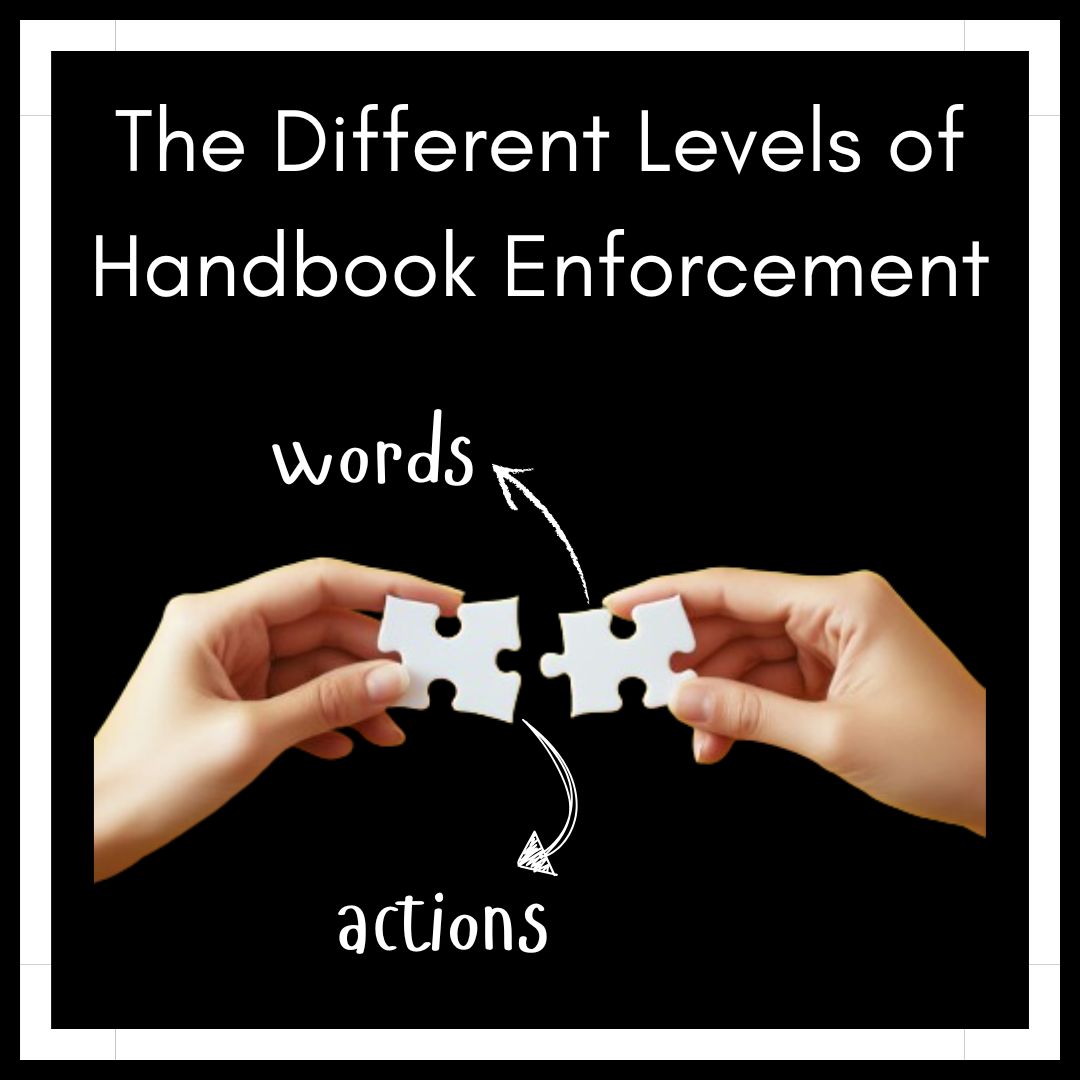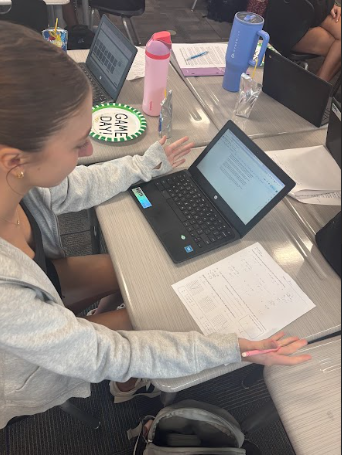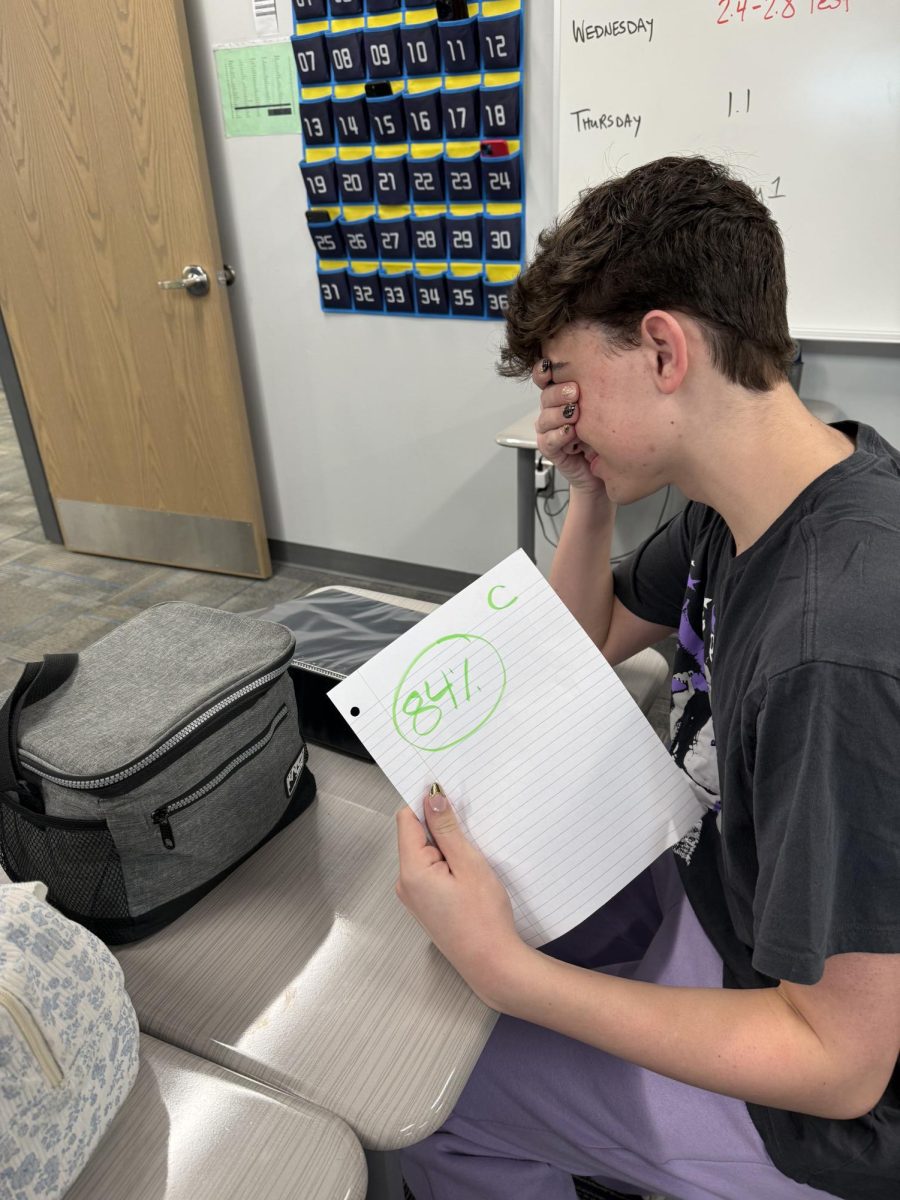At the start of every school year, students and staff are required to watch a video summarizing main points of the student handbook. They then sign a form agreeing to abide by the rules. However, many students sign the form without ever having read the handbook. As a result, only certain rules- such as those governing personal electronics- are consistently enforced, while other regulations remain largely unknown and unenforced unless specifically addressed by teachers.
Rules that are overlooked:
Student passes (hall passes)
Most students are unaware of the fact that they are technically required to carry a hall pass whenever leaving a classroom- whether it is to visit another classroom or use the restroom. These passes can be kept in planners issued to students who ask for them from the main office. Despite this policy, hall passes are rarely enforced, leaving many students unaware of their existence.
Dress and Appearance
The handbook clearly states “clothing is not to be too tight, too short, too ragged, or too bare.” Yet these guidelines are frequently disregarded. Crop tops, sports bras, and overly short shorts are common sights seen in the hallways. Some may argue that the terms “too tight” or “too bare” are open to interpretation, but a quick online search offers the same examples provided above.
Despite this clarity, students often ignore the dress code. The handbook warns, “refusal to comply or habitual violations will result in disciplinary action,” but consequences are very seldom enforced, creating a gap between policy and practice.
Technology usage
While most students understand they shouldn’t play games during class, many are unaware of stricter restrictions regarding their school-issued Chromebooks. According to the handbook, “Elkhorn Public Schools Internet Access is to be used only for classroom related activities. This policy applies when using either school equipment or personal equipment on the district network.”
This rule explicitly bans recreational use, yet games like Wordle, Tetris, and Minecraft are commonly played during study halls, or even during classes. Unless specifically told by a teacher to play a game for an assignment, students are not ever allowed to play games or use their Chromebook for entertainment. Unless teachers actively intervene, students will remain largely unaware of these guidelines.
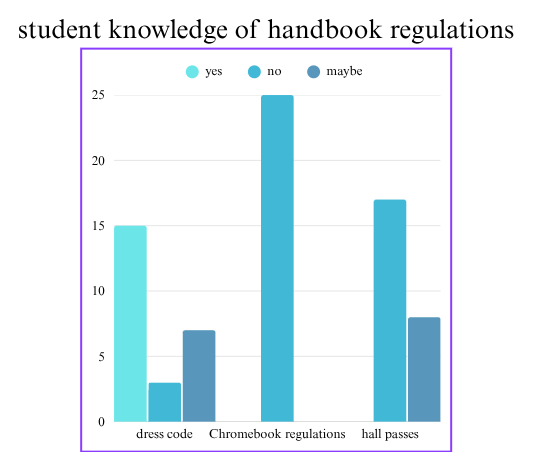
Why are certain areas more enforced than others?
In order to understand why certain topics are more enforced than others, the creation of the handbook and the importance of suppressing issues such as bullying or hazing comes into play.
The handbook dates back to the founding of Elkhorn High School in 1979.
“There’s the original Elkhorn high school student handbook and it has just evolved over a period of time due to technology,” Radicia said. “We change the language to meet the year and the time.”
Each year, the handbook is revised and key changes or topics are made aware on teachers’ first day back to work. Then, it is presented to the students within the first week of school during TA. However, awareness remains low among the student body.
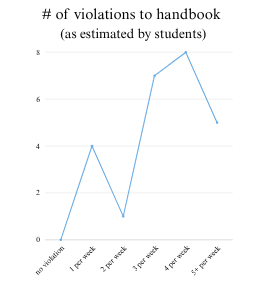
“I would say less than 3% of students have actually read the handbook, but what we’ve come to understand is that at least 10% of students need to read it,” Radicia said.
While Radicia’s estimate might seem low, a poll revealed that every student surveyed (25 students) had never read the handbook at all and every student had lied on the form saying they had read the handbook at the beginning of the school year.
It also showed that 60% of students believe that less than half the teachers enforce the handbook, and a further 20% of students believe that 0-30% of their teachers enforce it.
Solutions
The main reasons for the lack of awareness lies in students’ refusal to read the handbook coupled with inconsistent enforcement by teachers. If staff were to fully enforce the handbook, students would have no choice but to familiarize themselves with the rules.
One example of active enforcement comes from Spanish teacher Belarmino Chavez, who writes his own classroom handbook. He reviews it thoroughly with his students at the beginning of each year, ensuring clarity on expectation and rules.
“He can be quite a strict teacher at times,” Spanish 3 student Morgan Malik said. “But he always keeps a good balance between fun and rules in his classroom.”
Having a good balance between rules and entertainment is important in the learning environment, as students should be able to enjoy their class while still being upheld to the expectations assigned to them at the beginning of the year.
Student opinions
Many students at North view the handbook as something they do not need to care about, since it takes away many things they believe they are entitled to. While many could argue over topics like the dress code, these subjects are included in the handbook for a reason, even if it takes a bit of thinking to see why.
“Having a dress code is important, even if some people don’t follow it,” freshman TayLeigh Barnes said. “Otherwise, what is the limit? Someone could come to the school in a bathing suit for all they cared.”
Rules are not necessarily placed there for you to like them; they are there to ensure your learning is first priority.
“Even though I don’t exactly like the rule about hall passes, it makes sense,” sophomore Ruthvika Santhos said. “I spend study hall in the pod because I am a TA (teacher assistant/aid) and sometimes there’s a lot of people roaming in the halls and being crazy loud.”
Even something as small as playing the Wordle and Tetris can cause a distraction to your learning.
“I always play games in class, because otherwise I get bored,” junior Aashish Gopisetty said. “But the fact that we aren’t allowed to do it in school or outside of school really makes sense. We didn’t pay for these Chromebooks, the school did so we can learn better.”
Final words
To bridge the gap between words and actions, staff and students must be educated about the handbook’s guidelines. Teachers and administration should either commit to enforcing every aspect of the handbook or remove unenforced rules altogether. After all, the handbook is a contract that every student signs at the beginning of the year- one that deserves to be upheld in full.



